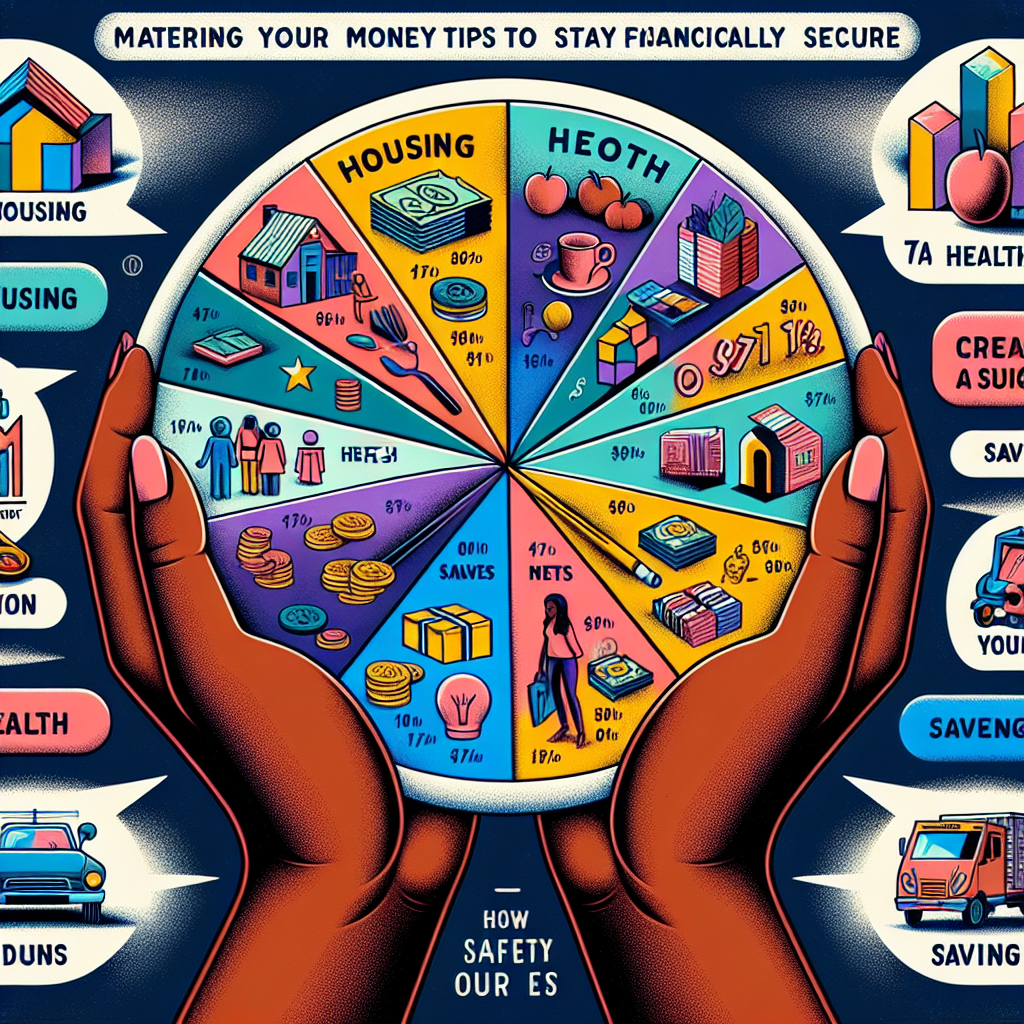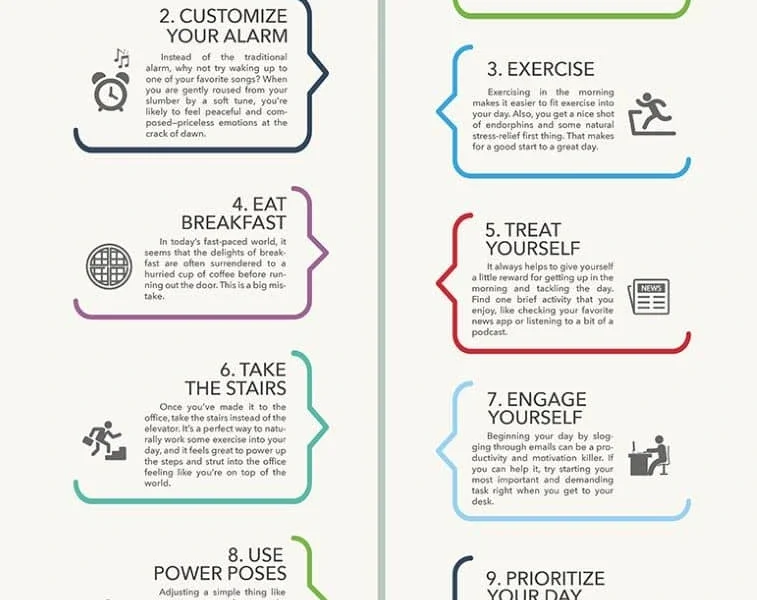Mastering Your Money: Budgeting 101 Tips to Stay Financially Secure
In today’s fast-paced world, it can be easy to lose track of your finances and let your money slip through your fingers. However, with the right budgeting strategies and tips, you can take control of your finances and stay financially secure. In this article, we’ll cover everything you need to know about budgeting, from basic principles to advanced techniques, to help you master your money and achieve your financial goals.
I. Introduction to Budgeting
Budgeting is the process of creating a plan for your income and expenses to help you manage and control your money effectively. It involves setting financial goals, tracking your spending, and making informed decisions about how you allocate your resources. A budget is a powerful tool that can help you save money, pay off debt, and achieve financial freedom.
II. Why Budgeting is Important
1. Helps You Achieve Your Financial Goals:
Budgeting allows you to set clear financial goals and develop a plan to achieve them. Whether you want to buy a home, save for retirement, or travel the world, budgeting helps you prioritize your spending and allocate your resources wisely to reach your goals.
2. Provides Financial Stability:
By creating a budget, you can ensure that you have enough money to cover your essential expenses, save for emergencies, and avoid living paycheck to paycheck. Budgeting helps you build a financial safety net and provides peace of mind knowing that you are prepared for unexpected expenses.
3. Helps You Control Your Spending:
One of the biggest benefits of budgeting is that it helps you track your spending and identify areas where you can cut back. By reviewing your budget regularly, you can eliminate unnecessary expenses, reduce debt, and increase your savings, ultimately improving your financial health.
III. Setting Up Your Budget
1. Calculate Your Income:
The first step in creating a budget is to calculate your total monthly income. This includes your salary, bonuses, side hustle earnings, and any other sources of income. Be sure to account for taxes and deductions to get an accurate picture of your take-home pay.
2. Track Your Expenses:
Next, track your monthly expenses by recording all of your spending, including fixed expenses (rent, utilities, insurance) and variable expenses (groceries, dining out, entertainment). Use a spreadsheet or budgeting app to categorize your expenses and calculate your total monthly expenditure.
3. Set Financial Goals:
Once you have a clear understanding of your income and expenses, it’s time to set financial goals. Identify short-term goals (e.g., pay off credit card debt), medium-term goals (e.g., save for a vacation), and long-term goals (e.g., buy a home). Establishing clear goals will help you prioritize your spending and stay motivated to stick to your budget.
IV. Tips for Budgeting Success
1. Create a Realistic Budget:
When creating your budget, be realistic about your income and expenses. Avoid overestimating your income or underestimating your expenses, as this can lead to budgeting pitfalls. Instead, use actual spending data to create a realistic budget that reflects your financial reality.
2. Track Your Spending:
To stay on track with your budget, track your spending regularly and compare it to your budgeted amounts. This will help you identify areas where you are overspending and make adjustments as needed. Consider using a budgeting app or spreadsheet to automate this process and make it easier to track your finances.
3. Cut Back on Non-Essential Expenses:
To free up more money for savings and debt repayment, consider cutting back on non-essential expenses. This may include dining out less frequently, canceling subscription services, or shopping for more affordable alternatives. By reducing unnecessary spending, you can redirect your resources towards your financial goals.
4. Build an Emergency Fund:
Having an emergency fund is crucial for financial security, as it provides a safety net for unexpected expenses such as medical bills, car repairs, or job loss. Aim to save at least three to six months’ worth of living expenses in your emergency fund to cushion against financial shocks and avoid going into debt.
5. Automate Your Savings:
Make saving a priority by automating your savings contributions to your retirement accounts, emergency fund, or other savings goals. Set up automatic transfers from your checking account to your savings account on a regular basis to ensure that you consistently save money without having to think about it.
6. Review and Adjust Your Budget:
Budgeting is an ongoing process that requires regular review and adjustment to reflect changes in your financial situation. Be proactive about checking your budget, tracking your spending, and making updates as needed to stay on track with your financial goals. Consider reviewing your budget monthly or quarterly to identify areas for improvement and make necessary changes.
V. Advanced Budgeting Techniques
1. Zero-Based Budgeting:
Zero-based budgeting is a method where you allocate every dollar of your income towards a specific purpose, such as savings, debt repayment, or expenses. With zero-based budgeting, your total income minus your total expenses should equal zero, meaning that every dollar has a designated purpose within your budget.
2. Envelope System:
The envelope system is a cash-based budgeting method where you allocate cash into different envelopes for specific spending categories, such as groceries, dining out, and entertainment. Once an envelope is empty, you cannot spend any more money in that category until the next month. The envelope system helps you limit your spending and stay within your budgeted amounts.
3. Pay Yourself First:
Paying yourself first is a budgeting principle where you prioritize saving and investing before paying any other expenses. By setting aside a portion of your income for savings or retirement contributions as soon as you receive your paycheck, you ensure that your financial goals are met before any other spending occurs. This approach helps you build wealth over time and avoid overspending.
4. 50/30/20 Rule:
The 50/30/20 rule is a budgeting guideline that suggests allocating 50% of your income towards needs (e.g., rent, utilities), 30% towards wants (e.g., dining out, entertainment), and 20% towards savings and debt repayment. By following this rule, you can strike a balance between meeting your essential expenses, enjoying discretionary spending, and building financial security.
VI. Conclusion
Budgeting is a fundamental skill that can help you take control of your finances, achieve your financial goals, and stay financially secure. By setting up a budget, tracking your spending, and making informed decisions about your money, you can master your money and build a solid financial foundation for the future. Use the tips and techniques outlined in this article to create a budget that works for you and stay on track with your financial goals. Remember that budgeting is a journey, not a destination, so stay committed to managing your money wisely and watch your financial future flourish.








Leave a Comment